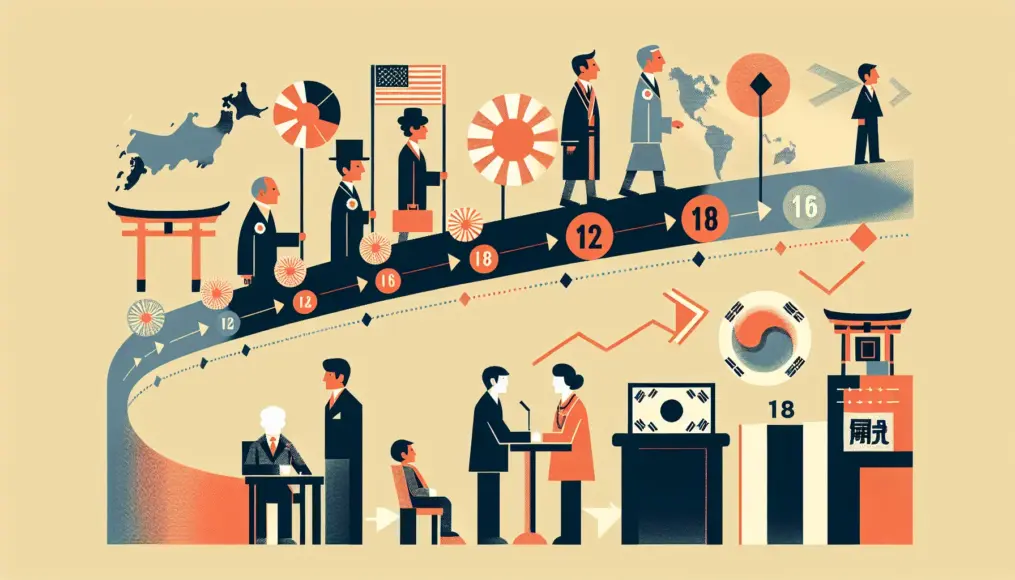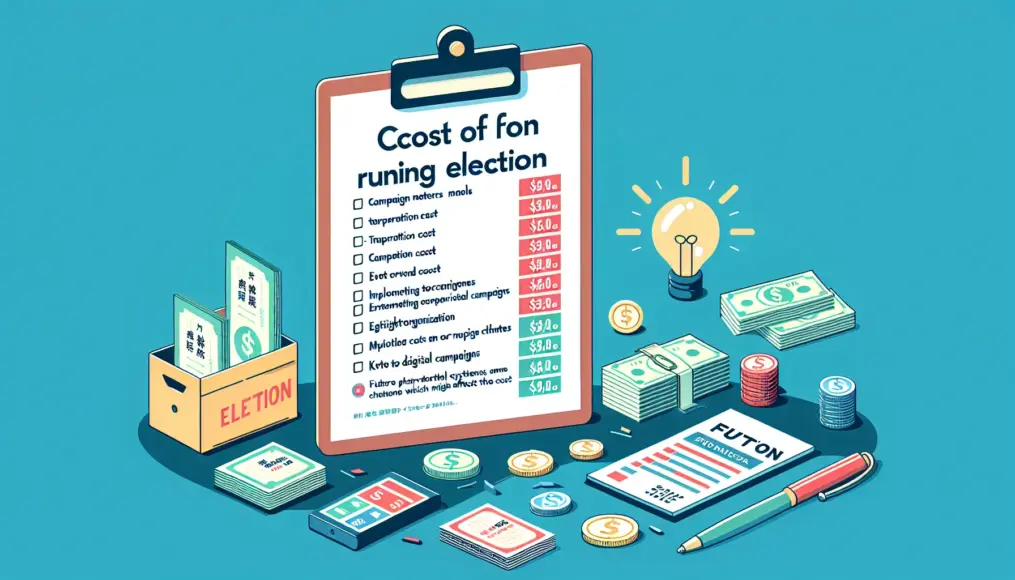When we consider the age of eligibility for election, we begin to understand how it influences our political participation and the structure of society. Looking back through history, the changes in electoral systems are not merely about adjusting age limits; they reflect shifts in our consciousness and values. Particularly now, as the importance of younger generations engaging in politics continues to rise, this topic deserves our attention more than ever.
In this article, we will delve into the historical background of the age of eligibility for election, the process behind the formation of current systems, and the implications for society. We will also explore how these aspects compare to other countries, providing insight into how electoral systems may evolve in the future.
Understanding the changes in the age of eligibility for election is a crucial perspective for considering the future of political participation. We invite you to join us as we explore this important topic.
- Investigating the historical background of the age of eligibility for election
- The formation process of current systems and their impact
- Considering future prospects from an international perspective
Historical Background of the Voting Age
The voting age is a crucial element within electoral systems. Changes to this age can either expand or restrict political participation. Looking back through history, early electoral systems allowed only those who had reached a certain age to vote or run for office. As society evolved, so did the electoral systems. Notably, in the post-war era, there was a growing trend to reassess the voting age alongside the advancement of democracy.
In this section, we will explore the reasons behind the voting age in early electoral systems and the changes that took place after the war. This will help us understand how the current electoral system has been shaped, as well as the social factors that have influenced it.
Early Electoral Systems
In the early electoral systems, the voting age was set relatively high. This was due to the emphasis on political understanding and social experience. Many countries based their voting age on the age of adulthood, requiring individuals to reach a certain age to obtain voting rights. This approach stemmed from the belief that only those with mature judgment should be involved in politics in order to ensure societal stability.
As time passed, societal attitudes shifted, and the voices and participation of younger generations began to be valued more. Consequently, discussions about lowering the voting age started to gain traction.
- The voting age was set high in early electoral systems.
- The emphasis on societal stability influenced this decision.
- The opinions of younger generations began to be recognized as important.
Changes After the War
After the war, the value of democracy was reassessed, leading to a broader push for political participation. Many countries lowered the voting age, encouraging younger people to engage in politics. This shift was particularly evident during a time when social and student movements were thriving, as young individuals became increasingly interested in making their voices heard.
International influences also played a significant role. Observing the electoral systems of other countries and the participation of younger citizens prompted calls for reform domestically. In response to this momentum, the voting age was reevaluated, ultimately shaping the current system we see today.
By understanding the historical background of voting systems, we can gain clearer insights into the nature of political participation today. If you’re interested in this topic, you may also want to check out this article, “Exploring the Functions and Impact of Unified Local Elections,” which delves into how elections promote citizen participation and support democracy.
- The value of democracy was reassessed after the war, leading to expanded political participation.
- Younger people were increasingly encouraged to engage in politics.
- The system was reevaluated in response to international influences.
The Evolution of the Current Voting Age
The current voting age has been shaped by a variety of laws and political factors. Notably, the interplay between legal frameworks and political movements has closely influenced this evolution, making the process by which the voting age has changed in response to societal shifts particularly fascinating. In this section, we will explore how the interactions between laws and politics, as well as social factors, have impacted the current voting age.
We will delve into how legislative amendments have been enacted, examining the political context surrounding these changes. Additionally, we will consider how shifts in societal attitudes and values have been reflected in the voting age.
The Interplay Between Law and Politics
Changes to the voting age typically occur through amendments to existing laws. Discussions and votes in legislative bodies lead to the establishment of new standards. Throughout this process, the opinions of politicians and political parties play a significant role. Particularly during election seasons, the voting age often emerges as a critical issue, with election outcomes frequently driving changes in legislation.
Moreover, the voices of citizens are vital in the law-making process. When civic movements and organizations advocate for change, they can exert pressure on political systems, prompting a reevaluation of the voting age. Thus, law and politics continuously influence one another, driving the evolution of the system.
- Changes to the voting age occur through legal amendments
- Legislative discussions impact the establishment of laws
- Citizens’ voices affect election outcomes and legal reforms
Social Factors
Changes in the voting age are significantly influenced by social factors as well. For instance, the expansion of education and a rising political consciousness among young people have fostered a stronger push for youth engagement in politics. This context has led to increased calls for lowering the voting age.
Additionally, international trends cannot be overlooked. By looking at the electoral systems of other countries, there is a greater understanding of domestic reform efforts. As a result, societal support for reevaluating the voting age has been growing. Changes within society provide new perspectives that influence both laws and politics, driving the evolution of the system.
- The expansion of education is promoting youth political participation
- International trends influence domestic reform efforts
- Societal changes offer new perspectives on law and politics
The Social Impact of Age Restrictions
Setting the voting age has various implications for society as a whole. Balancing the political participation of younger generations with the influence of older adults is a critical factor that can shape the future of a nation. In this section, we will explore how the voting age affects youth political engagement and the significant role older individuals play. This will shed light on how age restrictions contribute to the dynamics of society.
As younger individuals become more politically active, fresh perspectives and values are reflected in the political sphere. At the same time, the knowledge and experience that older adults possess are recognized as valuable resources. The interaction between these two groups can enhance the quality of political discourse.
Youth Political Participation
The involvement of young people in politics is crucial for society as a whole. When their opinions and values are represented, it helps determine the direction of future society. Recently, an increasing number of young people are obtaining information through social media, which has heightened their interest in politics. This trend has led to calls for lowering the voting age, providing youth with more opportunities to express their views in the political arena.
Moreover, youth political participation lays the groundwork for nurturing the next generation of leaders. By engaging in politics, young people deepen their understanding of social issues and may become proactive policy-makers in the future. Thus, youth involvement in politics goes beyond merely having the right to vote; it plays an essential role in the broader development of society.
- Youth political participation determines the future direction of society
- Interest in politics is rising through social media
- It serves as a foundation for cultivating the next generation of leaders
The Influence of Older Adults
Older adults wield significant influence in the political realm. Through years of experience, they have developed a deep understanding of various aspects of society, and their knowledge is an invaluable resource. Particularly during elections, older individuals tend to have higher voter turnout rates, making their opinions crucial for politicians.
However, while older adults hold substantial influence, there is a challenge in that the voices of younger generations can often be overlooked. Therefore, it is essential to strike a balance in politics. We must respect the knowledge and experience of older adults while ensuring that the perspectives of younger individuals are included in political discussions. This approach is expected to lead to more inclusive and balanced policymaking.
The influence of older adults and the political participation of youth are both vital elements in the dynamics of society. For those interested in this theme, we recommend reading the article “Exploring the Realities and Future of an Aging Society through Experience.” It delves into specific challenges facing an aging Japan and offers insights into future prospects through individual experiences.
- Older adults possess valuable experience and knowledge
- They have high voter turnout rates, making their opinions significant
- Balancing their influence with youth perspectives is essential for inclusive policymaking
A Global Perspective and Future Outlook
The voting age varies significantly from one country to another, making it crucial to examine this issue from an international standpoint. By understanding the electoral systems of other nations, we can identify potential improvements and directions for our own voting practices. Additionally, future global trends and societal changes may prompt a reevaluation of the voting age. In this section, we will analyze the current situation through comparisons with other countries and consider what the future may hold.
From a global perspective, many countries are lowering the voting age, which promotes greater political participation among young people. This trend raises important questions about how future reforms will unfold and how they might impact our society.
Comparing International Practices
The voting age is not only different across countries but also changes over time. For instance, while Nordic countries have set the voting age at 18, some nations allow participation starting at just 16 years old. This lower age threshold encourages political involvement among youth, invigorating society as a whole.
Looking at examples from other countries provides valuable insights for reforming our own system. In particular, when young people’s voices are reflected in politics, new approaches to addressing social issues are likely to emerge. Thus, international comparisons will play a significant role in shaping future reforms.
- Nordic countries set the voting age at 18
- Some nations allow participation from age 16
- Learning from international examples can guide domestic reforms
Potential Changes Ahead
In the future, we may see further reductions or reevaluations of the voting age. As society evolves and the importance of young people’s opinions increases, there will be a growing demand for the electoral system to adapt to these needs. The spread of education and advancements in information technology are creating an environment where young people can engage actively in politics.
Moreover, international trends are likely to influence domestic reforms. As political participation among the youth increases globally, the question arises: how will various countries respond, and what changes will this bring to our society? The hope is that these developments will lead to a more inclusive political landscape that reflects diverse perspectives.
- Future reductions in the voting age are possible
- The system must adapt to societal changes
- International trends will affect domestic reforms
Conclusion
The age of eligibility to run for office is a crucial factor that is significantly influenced by societal changes and political trends. By reflecting on the history from the early electoral systems to the post-war transformations and the current framework, we’ve gained insight into how the age of candidacy has been shaped over time. Additionally, considering the political engagement of younger generations and the influence of older citizens can provide valuable perspectives on how politics may evolve in the future.
Comparing international practices is also vital; looking at examples from other countries can offer hints for reforming our own system. As we look ahead, it’s important to pay attention to the potential lowering of the age of candidacy and how shifts in societal attitudes might impact politics. These interconnected factors are likely to reshape the landscape of political participation in our society.
- The age of candidacy is deeply influenced by society and politics.
- Increased participation from younger individuals reflects the diversity of society.
- International comparisons are essential and can lead to future reforms.
Contemplating the future of political participation is incredibly important for our collective future. We encourage you to share your thoughts and opinions in the comments!



Comment